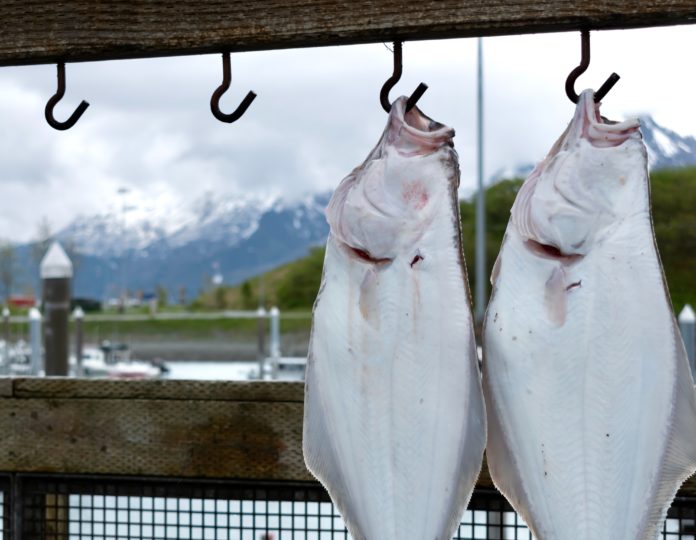A U.S. District court judge is expected to issue a decision this spring on a lawsuit filed by the Groundfish Forum challenging a National Marine Fisheries Service (NMFS) decision setting abundance-based limits on halibut bycatch in the Amendment 80 Bering Sea trawl fishery.
The Groundfish Forum, based in Seattle, filed its complaint with the U.S. District Court in Anchorage on Dec. 19, challenging the new halibut bycatch rules that were first adopted by the North Pacific Fishery Management Council and subsequently approved by NMFS.
On Feb. 29, the Halibut Defense Alliance intervened on the side of NMFS over concerns about the number of halibut taken as bycatch by Amendment 80 vessels in the Bering Sea, saying the limits on halibut bycatch would ensure more equitable access to halibut fisheries. The alliance is a broad coalition of commercial harvesters, charter operators, processors and community organizations representing halibut-dependent communities in Alaska and the Pacific Northwest.
The alliance contends that the Amendment 80 fleet is the single largest source of halibut bycatch in the Bering Sea and responsible for the overwhelming majority of halibut bycatch across all trawl fisheries.
“Nearly 90% of its bycatch in recent years has been concentrated in known halibut nursery habitat in the Bering Sea,” the alliance said in a statement released Feb. 29. “Excessive bycatch in these areas harms the halibut population all along the coast because the juvenile halibut the Amendment 80 fleet kills will not mature, reproduce, or migrate to other areas.”
Members of the alliance have led the 12-year fight to limit halibut bycatch in the Bering Sea, advocating for abundance-based bycatch management since 2016.
“Setting fishery limits based on abundance is a fundamental fisheries management concept: catch limits go up when abundance is high and go down when abundance is low,” the alliance said. “While all halibut fishermen have been held to this standard, the Amendment 80 fleet of bottom trawlers was not. Instead, the Amendment 80 fleet was allowed to kill large amounts of halibut regardless of the status of the halibut population. The new rules correct this inequity and protect community-based fisheries.”
The Groundfish Forum had no immediate comment on the alliance intervening on the side of NMFS, but did provide a copy of its 42-page complaint naming NMFS, NOAA, Secretary of Commerce Gina Raimondo, and NOAA Assistant Administrator Janet Coit as the defendants.
The lawsuit contends that implementing a Pacific halibut bycatch reduction measure in Amendment 123 to the Fisheries Management Plan for Groundfish of the Bering Sea and Aleutian Islands violates the Magnuson-Stevens Fishery Conservation and Management Act (MSA) and the National Environmental Policy Act (NEPA).
Attorneys for the Groundfish Forum contend that Amendment 123 is politically motivated, arbitrary and unlawful allocation of fishing privileges that unfairly single out the plaintiff’s members with punishing restrictions that would cause economic losses potentially exceeding $100 million annually.















